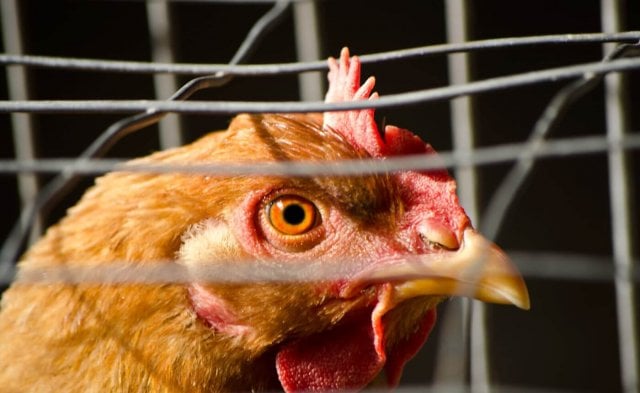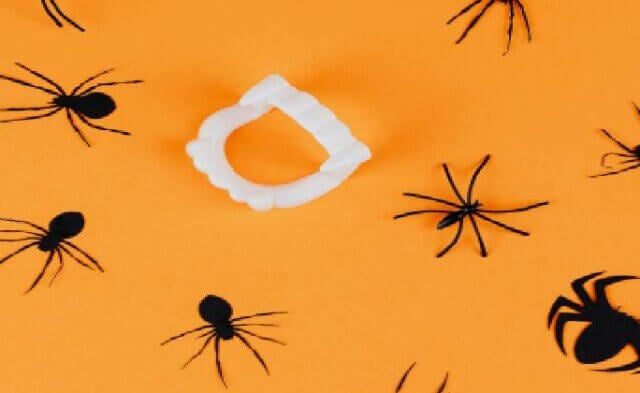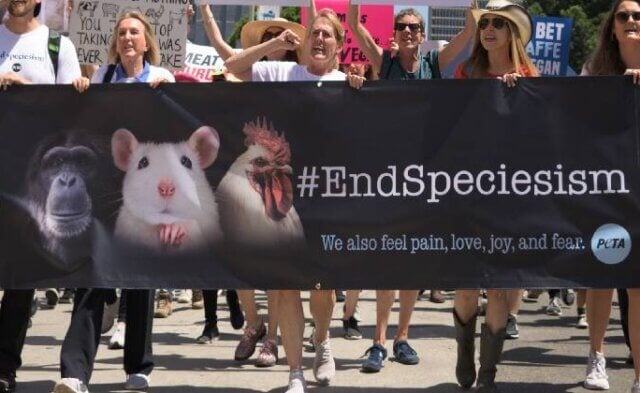By Rebecca Libauskas
Photos of ominous orange skies, neighborhoods reduced to ash, and burnt-out vehicles are too common in the news. These visuals serve as stark reminders of the widespread devastation of wildfires caused by global warming.
The intensifying fires are due to a climate-fire feedback loop. Wildfires release carbon dioxide, warming the planet and creating conditions for even more fires and emissions. The climate catastrophe has affected the duration and severityof fire seasons around the world—perhaps even in your area. Visit our disaster preparedness blog for tips on how to plan for any animal companions you may have.
The easiest and most effective way to beat the heat? Go vegan. Animal agriculture is a significant source of greenhouse gas emissions. Opting for animal-free foods supports a more resource-efficient system, requiring less land, water, and energy, which in turn alleviates pressure on ecosystems.
The United Nations’ Intergovernmental Panel on Climate Change stresses the importance of shifting from meat and other animal-derived foods to vegan living to combat the climate catastrophe. Let’s not add fuel to the fire by eating meat, eggs, and dairy—life and death hang in the balance.
The ongoing deadly wildfires in Texas have scorched around 1 million acres. The changing climate has played a huge role, with unseasonably warm temperatures and dry conditions increasing the risk. The Texas agriculture commissioner estimated that up to 10,000 cows may have diedor will need to be euthanized due to injuries. The situation is dire, with surviving animals suffering from severe injuries, such as burned hooves and udders. A Texas rancher’s wife reported seeing calves alone in scorched pastures and deceased cows scattered along the roads. This fire resulted in many losses—including human lives. We must help stop the climate-fire feedback loop.
We’ve entered a disturbing era of fire-related emissions. Those, for example, from California’s 2020 fires totaled 83 million tons of carbon dioxide—spewing out more carbon than all of California’s power plants combined. And 15 of the 20 largest fires in California history have occurred during the last two decades.
The Earth and our collective lungs are still processing Australian fires. Those blazes emitted 306 million tons of carbon dioxide—more than half of the country’s 2018 total emissions from all sources. And during 2021, wildfires set an unprecedented record for carbon dioxide emissions. A team of researchers revealed that the burning of boreal forests in North America and Eurasia released nearly half a gigaton of carbon, equivalent to 1.76 billion tons of CO₂.
Wildfires in California, Texas, Canada, and elsewhere also indirectly impact carbon emissions by reducing the carbon sink capacity of burned forests—contributing to higher atmospheric CO2 levels.
How will the environment absorb such an immense volume of emissions, especially when large swaths of forests are under threat? In Brazil, fires rage in the Amazon rainforest and the Pantanal wetlands. Most of them were set by loggers and ranchers to clear land for animal agriculture. Once this land is cleared, the cows grazing on it will contribute to the meat industry’s massive quantity of greenhouse gas emissions. The Amazon provides 20% of the world’s oxygen, so the question becomes: Why would we destroy the Earth to eat dead bodies?
“The planet is burning because people are still eating animals, who need massive amounts of land, energy, and water and emit enormous quantities of greenhouse gases,” says PETA President Ingrid Newkirk. “Animal agriculture is an existential threat to the Earth, and PETA is urging everyone to go vegan before it’s too late.”
No one needs to eat meat, eggs, or dairy, and switching to vegan eating is the most impactful thing each of us can do to help heal this burning planet, improve our health, and spare nearly 200 animals every year a miserable life and a violent, painful death.
Let’s go vegan—before it’s too late. The lives you save could include your own!
Order a FREE Vegan Starter Kit Today





